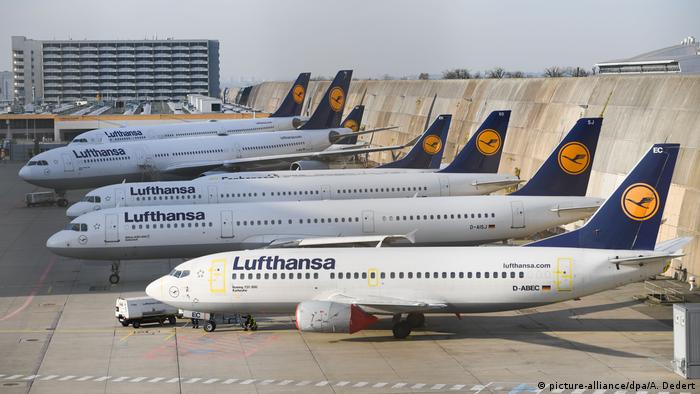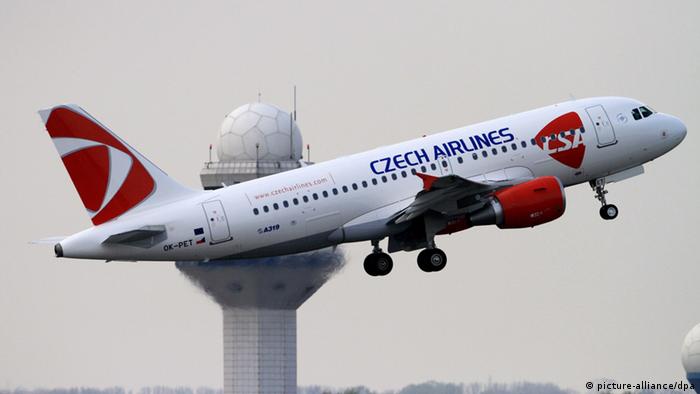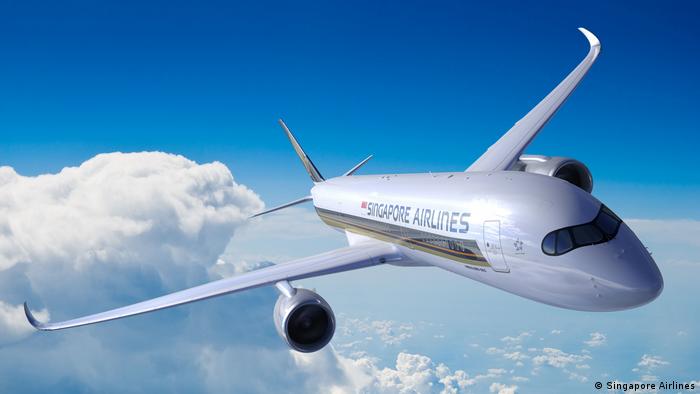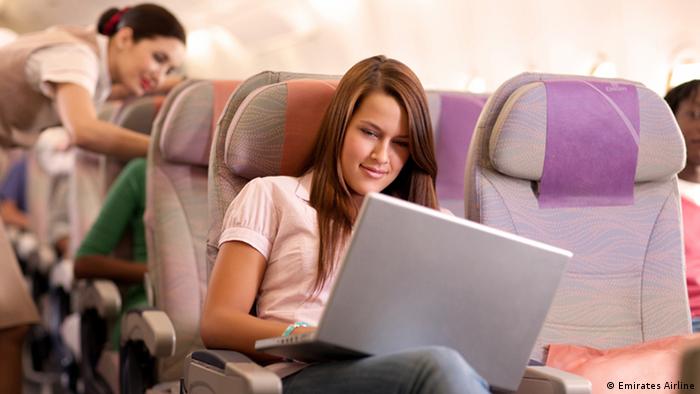
Lufthansa says 'unable to approve' coronavirus rescue over EU conditions
Airline giant Lufthansa said it cannot approve a German state rescue over fears that conditions imposed by Brussels would be too harsh. The aid package must still be cleared by the European Commission's competition arm.
Coronavirus-hit airline Lufthansa on Wednesday said its supervisory board was "unable to approve" a €9 billion ($9.9 billion) rescue plan from the German government because of fears that conditions imposed by Brussels over accepting the support might be too stringent.
"Conditions currently indicated by the EU Commission ... would lead to a weakening of the hub function at Lufthansa's home airports in Frankfurt and Munich" and must be "analyzed intensively," the company said in a statement.
"Against this background, the Supervisory Board was unable to approve the stabilization package in connection with the EU conditions."
The airline, Germany's national carrier, is losing huge amounts of cash as the coronavirus pandemic has grounded most of its flights.
Read more: Opinion: Lufthansa bailout shows Germany has learned nothing from the pandemic
Breach of competition rules?
Following weeks of negotiations, the German government and Lufthansa struck a deal on state aid on Monday, including secured loans and a 20% government shareholder stake in the airline.
But first, EU competition regulators must evaluate whether the government aid package restricts competition in the European aviation sector.
Under EU law, member states are generally prohibited from providing financial aid to national companies because it can distort fair competition in the EU's single market.
However, as the coronavirus pandemic has hit many sectors hard, especially aviation, regulators in Brussels have allowed for looser regulations.
Budget airline Ryanair said Tuesday it would contest the package, claiming that government-backed aid would make it harder for no-frills carriers to compete in short-haul markets to and from Germany.
rc/sms (AFP, Reuters, dpa)

Aid yes, interference no!
Germany is throwing Lufthansa a €9 billion ($9.6 billion) lifeline. The government bailout will give the state a 20% stake in the airline, which could rise to 25% plus one share in the event of a hostile takeover bid as Berlin says it seeks to protect thousands of jobs. Economy Minister Peter Altmaier insists there will be no meddling with corporate decisions.

Smartwings seeks smart deal
The Czech Republic is seeking more control over flight group Smartwings, the parent company of Czech Airlines. Industry Minister Karel Havlicek said the government could even take over the group completely, but executives replied that no one had expressed any such desire for that to happen as they preferred a state-guaranteed credit line to see the company through the coronavirus crisis.

TAP-ping into more state funds?
Portugal's flag carrier TAP has asked for a state-backed loan to secure the survival of the company. Employees want more state control through direct financing, with Prime Minister Antonio Costa raising the possibility of nationalizing the carrier. TAP is already 50% owned by the state with a 45% stake held by Brazilian-US entrepreneur David Neeleman. TAP employees hold the remaining 5% in shares.

Survival without aid? No(r)way!
Indirect state aid has come to the rescue of Norwegian, Norway's budget carrier that has completed a painful restructuring process and secured a credit guarantee from the government. Major lessor AerCap now holds a 15.9% stake after converting lease obligations into shares. BOC Aviation holds a vital 12.67% stake in Norwegian — and BOC is ultimately controlled by the state-owned Bank of China.

Singapore Airlines now Singa-poor?
Earlier this month, Singapore Airlines announced its first-ever annual loss in its 48-year history after grounding most of its fleet due to the pandemic-caused lockdowns. The carrier is already majority-owned by the government investment and holding company Temasek, which holds well over 50% of voting stock. The government has always stressed its non-involvement in the management of the airline.

The worst in the pack?
Of the government-owned airlines, the Gulf carriers Emirates, Etihad and Qatar have often raised eyebrows among rivals in many parts of the world. The latter have said the airlines in question aren't really playing fair, saying their business model is to crowd out competing airlines at any (state) cost. Before the pandemic, the three carriers had grown disproportionately for years.

State control a common ingredient
Aeroflot Group, which includes Russian flag carrier Aeroflot, Rossiya and Pobeda, is another case in point. It is 51.2% state-owned. But you don't really have to look far to find more airlines in this category. Right now, there are roughly 150 state-owned carriers around the globe, according to Wikipedia. It's not the rule, though, as there's an impressive total of about 5,000 airlines globally.
Author: Hardy Graupner